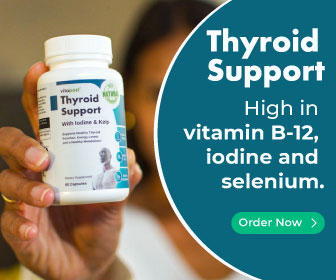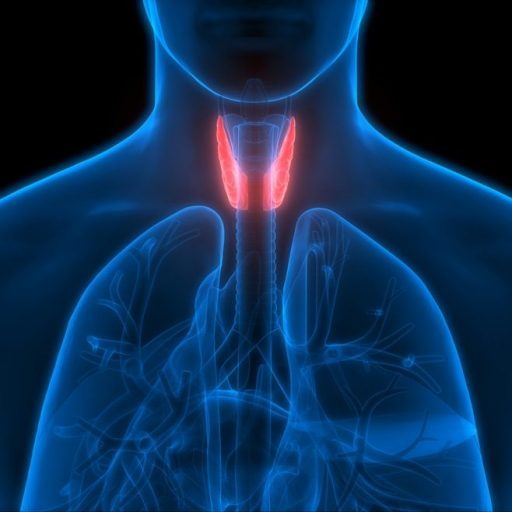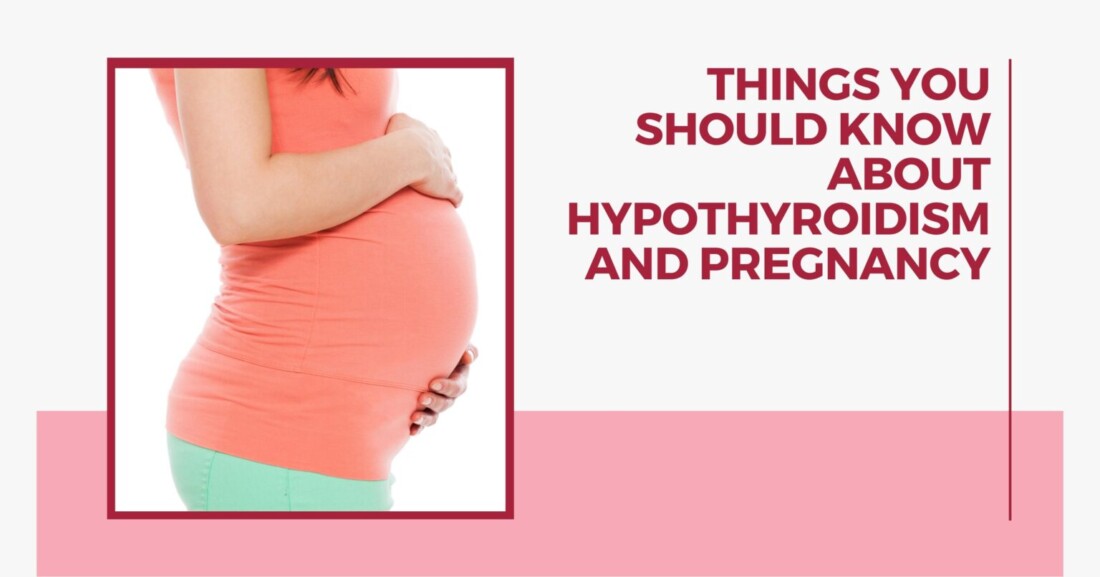The Ill Effects of Hypothyroidism and Pregnancy
Hypothyroidism and pregnancy are not mutually exclusive! However, if you’re pregnant, or planning to get pregnant, knowing a bit about how your thyroid functions in relation to pregnancy is a good idea because even women with perfectly normal thyroid function can experience thyroid problems either during or after pregnancy.
Normal Hormonal Changes During Pregnancy
Pregnancy causes a great many hormonal and physiological changes throughout the body. Some of these affect thyroid function. When you’re first pregnant, a hormone called human chorionic gonadotropin (hGC) produced by the placenta, helps the corpus luteum to develop. The corpus luteum is responsible for producing progesterone to maintain the pregnancy and develop the endometrium (lining of the uterus) so it can support a growing fetus.
Human Chorionic Gonadotropin
Human chorionic gonadotropin can also interact with TSH receptors on thyroid tissue cells to mildly increase production of thyroid hormones, notably during the first trimester when levels of hGC are highest. This results in a mild (subclinical) form of hyperthyroidism (excess thyroid hormones). When blood levels of thyroid hormones rise, the pituitary reduces production of TSH hormone.
Scientists are not sure why it’s necessary for hGC to get involved with thyroid hormone production like this but it may have something to do with the fetus’s requirement for maternal thyroid hormones during the first trimester. Once hGC levels drop during the 2nd and 3rd trimester TSH production should return to normal.
Interestingly studies have also shown that women who suffer from severe morning sickness usually have higher levels of hGC than women who don’t.
Estrogen
Estrogen is another hormone that affects thyroid hormones during pregnancy. It increases the level of thyroid binding proteins in blood serum. These are the proteins that carry the thyroid hormones around the body. Whilst the hormone molecules are bonded to the protein they’re inactive. To become active (able to be used by the body) they must be ‘freed’ from the proteins.
 When you see the terms ‘free T4’ and ‘free T3’ it is referring to hormone molecules that have been separated from their carrier proteins and are available for the body to use. Therefore, when you’re pregnant, the amount of thyroid hormone in your blood serum increases. However, most of it remains bonded to the transporter proteins so your actual free hormone levels remain normal.
When you see the terms ‘free T4’ and ‘free T3’ it is referring to hormone molecules that have been separated from their carrier proteins and are available for the body to use. Therefore, when you’re pregnant, the amount of thyroid hormone in your blood serum increases. However, most of it remains bonded to the transporter proteins so your actual free hormone levels remain normal.
Your thyroid gland will also enlarge slightly during pregnancy but should not be visible. Around 10 – 15% is normal. If you do develop a noticeably large thyroid (goiter) your doctor will probably arrange to test your thyroid function.
At around 12 weeks into gestation the fetal thyroid glands develop but they don’t start producing their own hormones until around 18 – 20 weeks. During that time it relies on maternal thyroid hormones. Once fetal thyroid hormone begins to happen, the fetus requires iodine which it obtains from the mother.
Iodine
Therefore your dietary requirements for iodine will increase to not only support your own thyroid hormone production but also that of your unborn child. Normal recommended dietary iodine is 150 micrograms and this usually increases to 200 micrograms during pregnancy. In developed countries iodine deficiencies are uncommon thanks to products like iodized salt and iodine fortified foods.
Thyroid hormones are vital for the normal development of the fetal central nervous system and brain. Shortfalls in these hormones, particularly in the first trimester before fetal thyroid hormone production begins, can cause neurological, cognitive and developmental problems in the baby.
Severe untreated maternal hypothyroidism resulting from iodine deficiency is more commonly associated with this. Growing evidence though indicates that even mild untreated hypothyroidism during pregnancy can lead to mild neurological abnormalities in the baby.
Developed countries now perform a newborn screening test shortly after birth to detect issues like congenital hypothyroidism. If they find thyroid abnormalities, they initiate the necessary treatment as soon as possible.
Hypothyroidism and Pregnancy – The Risks
Generally speaking, if you have an under active thyroid you should be fine so long as you keep taking your medications. Nonetheless, you should have a TSH test when you confirm your pregnancy to ensure your current dosage is adequate. It often happens that dosages must increase during pregnancy because you are supplying hormones for two people. You will likely need testing every six weeks or so during the first half of your pregnancy to ensure your dose remains high enough and at least once during the last trimester.
Deeper Insights into Hypothyroidism During Pregnancy:
- Physiological Implications: Hypothyroidism in pregnancy can lead to alterations in placental development and function. This condition may affect the transport of nutrients and hormones to the fetus, which is crucial for fetal development.
- Recent Research Findings: Recent studies have indicated a potential link between maternal hypothyroidism and neurodevelopmental disorders in children. These findings underscore the importance of thyroid hormone regulation for the developing fetal brain.
- Thyroid Hormone and Fetal Development: In the first trimester, the fetus is entirely dependent on maternal thyroid hormones. These hormones play a vital role in the development of the fetal brain and nervous system. Even mild thyroid hormone deficiencies in the mother can have long-term impacts on the child’s cognitive and motor development.
- Managing Hypothyroidism for Optimal Pregnancy Outcomes: It’s crucial to tailor thyroid hormone replacement therapy accurately during pregnancy. This involves regular monitoring of thyroid hormone levels and adjusting medication dosages to meet the changing physiological demands of pregnancy.
By providing these deeper insights, we aim to enhance your understanding of the complex relationship between hypothyroidism and pregnancy, ensuring you are well-informed about the latest research and best practices in this area.
The biggest problems with hypothyroidism and pregnancy lie with undiagnosed and untreated hypothyroidism, particularly severe hypothyroidism. Under those circumstances, hypothyroidism can cause:
- late pregnancy rise in blood pressure known as pre-eclampsia
- myopathy
- anemia
- abnormalities in the placenta
- miscarriage
- still born baby
- low birth weight of your baby
- transient congenital hypothyroidism in the baby
- postpartum hemorrhage
- and, in rare cases, congestive heart failure
Enhancing Your Journey Through Hypothyroidism and Pregnancy:
- Practical Tips for Managing Hypothyroidism During Pregnancy: We recommend regular TSH level monitoring, dietary adjustments to ensure adequate iodine intake, and staying in close communication with your healthcare provider. These steps are crucial for maintaining both your health and your baby’s development.
- Personalized Advice: If you have specific concerns or symptoms, consider keeping a symptom diary to discuss with your doctor. This can help tailor your treatment plan more effectively.
- Support Resources: We understand the importance of support during this time. Below are links to trusted forums and support groups where you can connect with other women experiencing similar challenges.
By providing these practical tips and resources, we aim to add significant value to your experience and management of hypothyroidism during pregnancy.
Hypothyroidism and Pregnancy – The Diagnosis
 As with many things to do with subclinical hypothyroidism, there are differing opinions on whether or not all women should be screened for thyroid problems during pregnancy. Part of this is due to the fact that current thyroid function tests can be easily misinterpreted and incorrect diagnoses made.
As with many things to do with subclinical hypothyroidism, there are differing opinions on whether or not all women should be screened for thyroid problems during pregnancy. Part of this is due to the fact that current thyroid function tests can be easily misinterpreted and incorrect diagnoses made.
Some doctors believe it’s important to check TSH levels either just before pregnancy or upon confirmation of pregnancy. Some may not see the need for testing unless the woman belongs to a high-risk group. These groups include having a family history of thyroid issues, possessing a goiter, or previously receiving treatment for hyperthyroidism.
Diagnosing hypothyroidism and pregnancy is a case of having blood tests done to check thyroid hormone levels. Simultaneously, the doctor will search for antibodies to determine the underlying cause, such as Hashimoto’s disease or iodine deficiency.
Upon a hypothyroidism diagnosis, you will receive replacement thyroid hormones, typically levothyroxine, a synthetic hormone replacing T4.
This is the safest type of hormone for your unborn baby until he or she can begin making their own.
If you have any concerns at all about your hypothyroidism and pregnancy, it’s always best to speak to your doctor.
Comparing ‘Hypothyroidism and Pregnancy’ with Other Resources:
- Depth of Information: Unlike many general health websites that only briefly touch on the topic, our page offers a comprehensive exploration of hypothyroidism during pregnancy, delving into hormonal changes, risks, and management strategies.
- Evidence-Based Approach: We provide information grounded in scientific research, which is often lacking in more generic health articles. This includes linking to studies and clinical guidelines for a more informed understanding.
- Personalized Insights: Our content is enriched with insights from Samantha Clarke, a Registered Endocrinology Nurse with personal thyroid experience, offering a unique blend of professional and personal perspectives.
By offering these distinct features, our ‘Hypothyroidism and Pregnancy’ page stands out as a more thorough, credible, and relatable resource compared to other available information online.
About the Author:
Samantha Clarke, a 55-year-old Registered Endocrinology Nurse with over two decades of experience, specializes in thyroid health. Diagnosed with thyroid issues herself, she combines personal experience and professional expertise to lead the “Thyroid in Women” blog. Her work focuses on demystifying thyroid conditions and offering evidence-based, practical advice, making her a reliable and authoritative voice in thyroid health. Samantha is dedicated to making complex medical information accessible to patients and readers alike.


